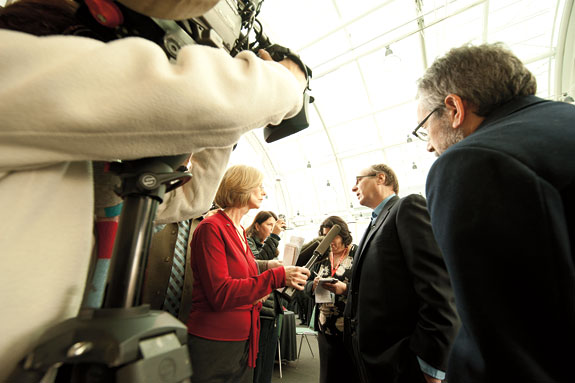George Nethercutt Jr. ’67—Knowing our nation
George Nethercutt Jr. ’67 may not be in Congress anymore, but he still yearns to shorten the distance between Washington, D.C., and his home state of Washington.
The effort has kept the Spokane native busy since he left the House of Representatives in 2005, when he transformed a project from his office into the George Nethercutt Foundation, a nonprofit organization to promote civic literacy and foster leadership qualities.
“We as Americans just don’t know the story of our country. And it troubles me. As a citizen, it bothers me,” says Nethercutt as we meet one afternoon last fall in Seattle, where he’s visiting on … » More …

